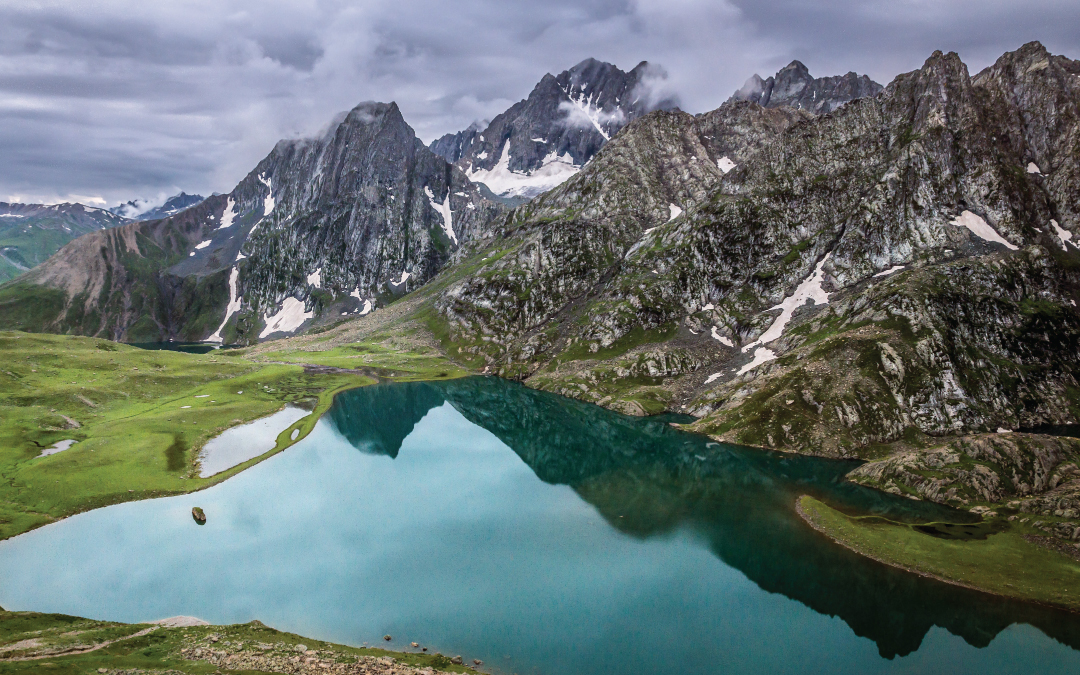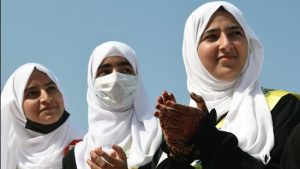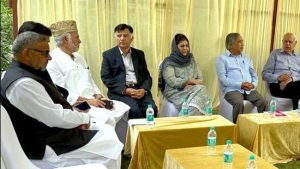
Reckless disposal of plastic waste: High-altitude lakes in Kashmir bear brunt of trekkers’ rush
Jammu & Kashmir has welcomed record number of tourists this year. But at a price. Unprecedented and unregulated tourist footfall to Kashmir’s high-altitude trekking sites has posed a major threat to ecologically fragile high-altitude alpine lakes, in particular the trek trails of the Kashmir Great Lakes in central Kashmir.
The Tourism Department in Kashmir has been alarmed by unusual littering of plastic and polythene trash along the 72-km trek trail to the famous lakes – Vishansar lake, Krishansar lake, Gadsar lake, Harmukh peak and Gangabal twin lakes. In a cleanliness drive launched between September 23 and 27, volunteers collected heaps of garbage, “having potential to increase ground temperature in the long run” in the Harmukh mountain range of Himalayas.
A record two million tourists have visited Kashmir this year, up from 13 lakh tourists who visited the Valley in 2013.
The Kashmir Great Lakes trek saw over 13,000 registered trekkers camping near high-altitude lakes this year, almost double compared to the previous high of 7,000 trekkers. The scale of littering has alarmed the tourism department. Around 5,000 domestic and 650 foreigners, besides locals, visited the high-altitude lakes, located above an altitude of 11,000 feet from the sea level. The sites remain open for trekkers only for three months.
As many as 25 gunny bags of trash were collected by 35 volunteers from these lakes, with most of the littering found around the picturesque Gangabal lake. “If this kind of waste disposal by trekkers continues at these high-altitude lakes, temperatures of these places are bound to go up. It will change the climatic conditions and these places will not be the same in the next 10 years,” Basharat Hussian, a tourist officer who spearheaded the drive, told.
“More than 13,000 trekkers visited the Kashmir Great Lakes. All the offbeat destinations do not have a garbage disposal plant or a sewage treatment plant as of now. We will need to organise these cleanliness drives. We may organise similar drives at Gurez, Bungus, Sinthan, Daksum etc., too,” Faz lul Haseeb, Director of the Tourism Department in Kashmir, told.
Mr. Haseeb said the Tourism Department will tie up with the Rural Development Department and local panchayats. “In these upper reaches, we have the nomadic community. They have been living there for many years and therefore can act as our guides for this process,” Mr. Haseeb said.
The department is also considering conducting a survey on the carrying-capacity of these trekking sites. “A scientific analysis and detailed research are required to know how much human intervention these sites can withstand,” Mr. Haseeb said. “Once we understand, a detailed strategy and plans can follow,” he added.
According to the volunteers who cleaned the lakes, ready-to-eat packets and water bottles accounted for most of the trash. “A mechanism will be put in place to stop the use of water bottles. Trekkers can carry steel bottles and chlorine tablets along,” Waseem Malik, Deputy Director, Tourism Department, said.
Earlier this year, an advisory was issued to restrict the size and number of groups on the trails of the Kashmir Great Lakes. “Only a 15-member group and seven such groups were allowed to trek on a day. However, the area is porous. Trekkers could not be regulated as per the advisory,” Mr. Malik said.
“Gangbal has such cold weather conditions that even cigarette butts and paper will not decompose for years, leave aside plastic bottles. Weathering process is really slow and the sunlight is minimal here,” he added.
The Tourism Department also plans to make it mandatory for trekkers to videograph treatment of trash once they return from the trek and submit it.

